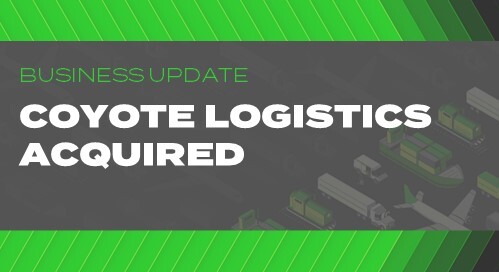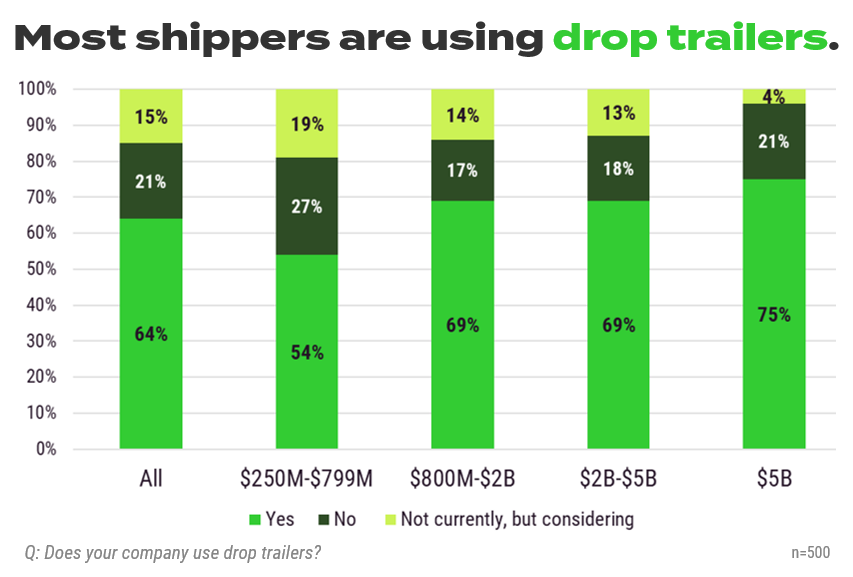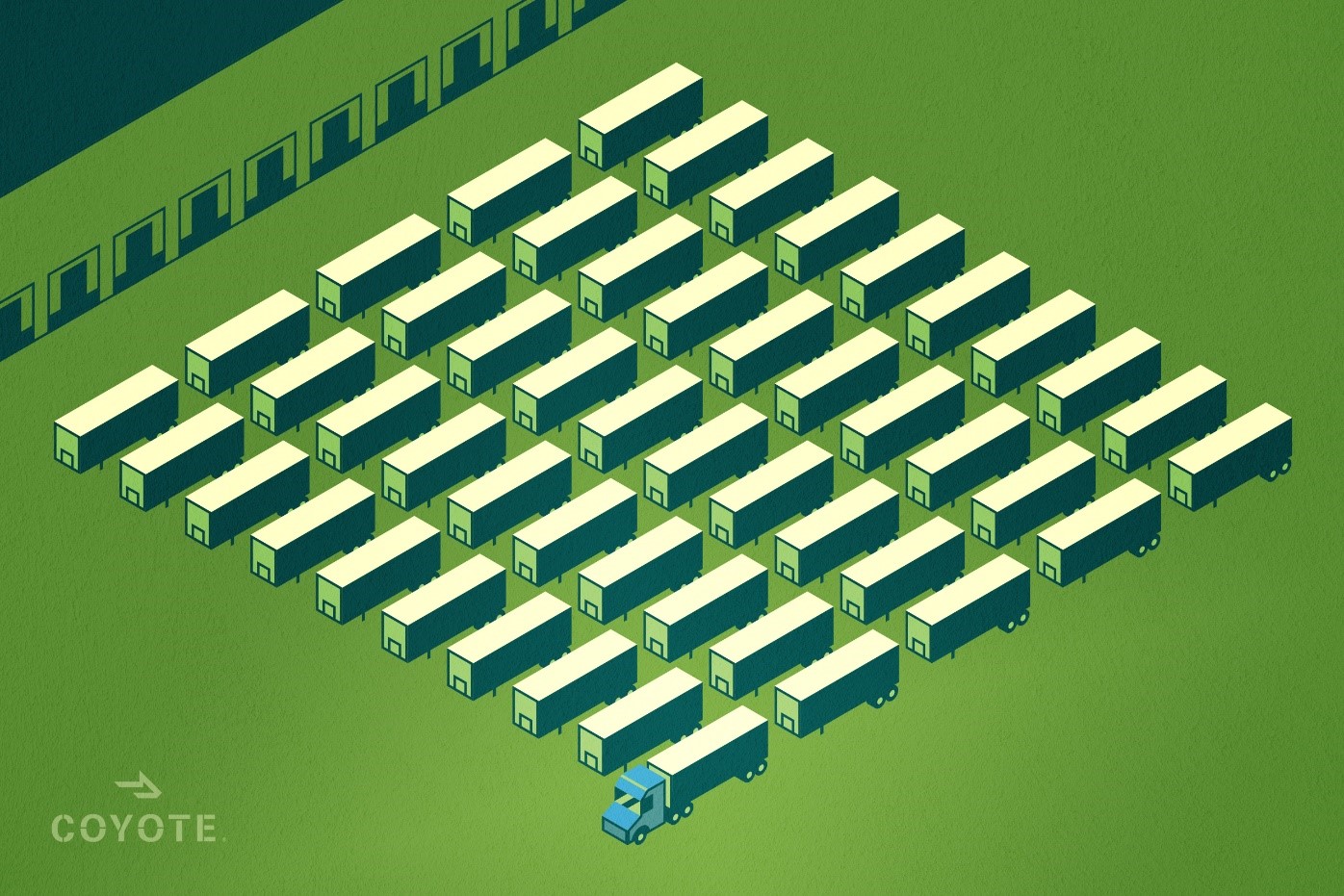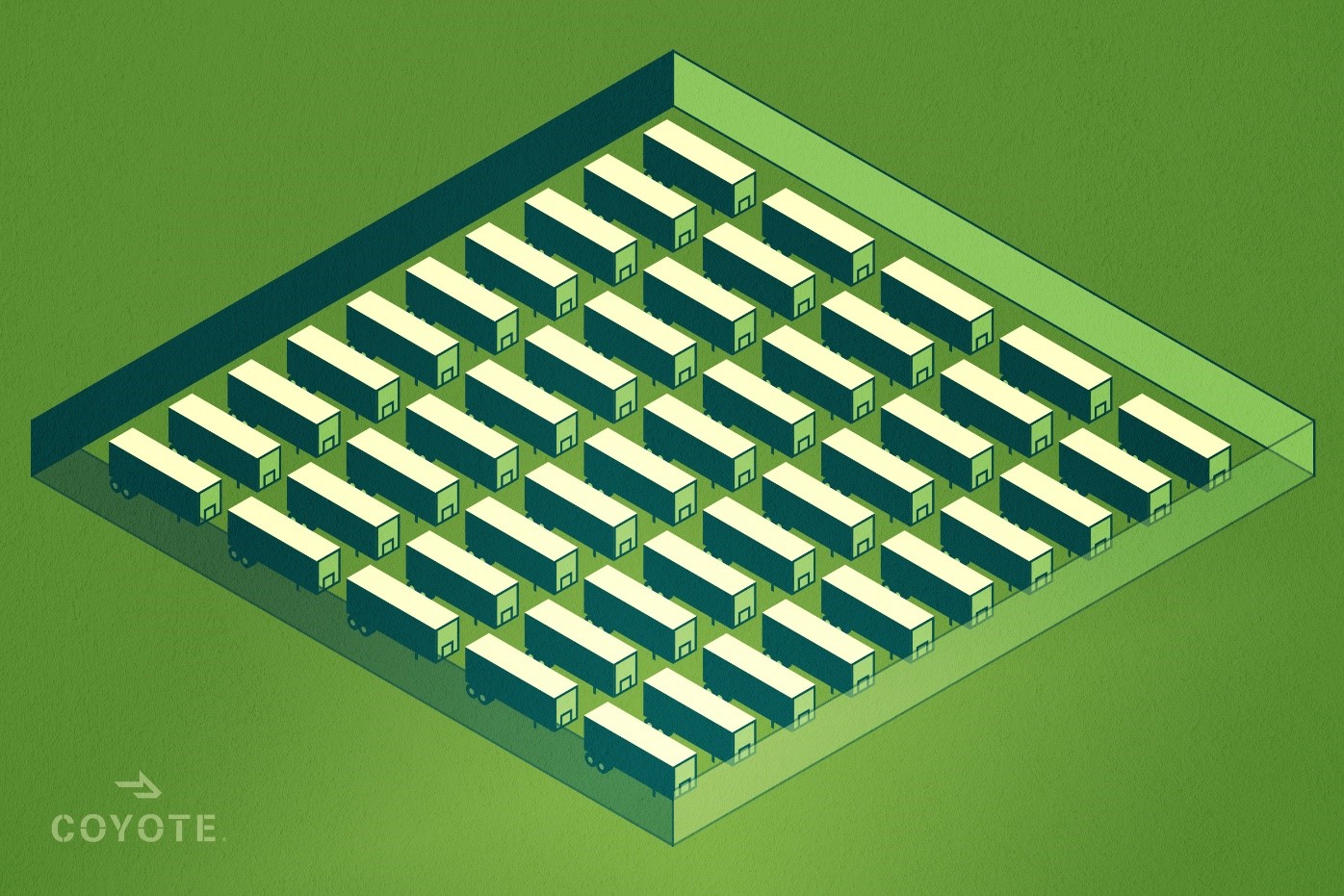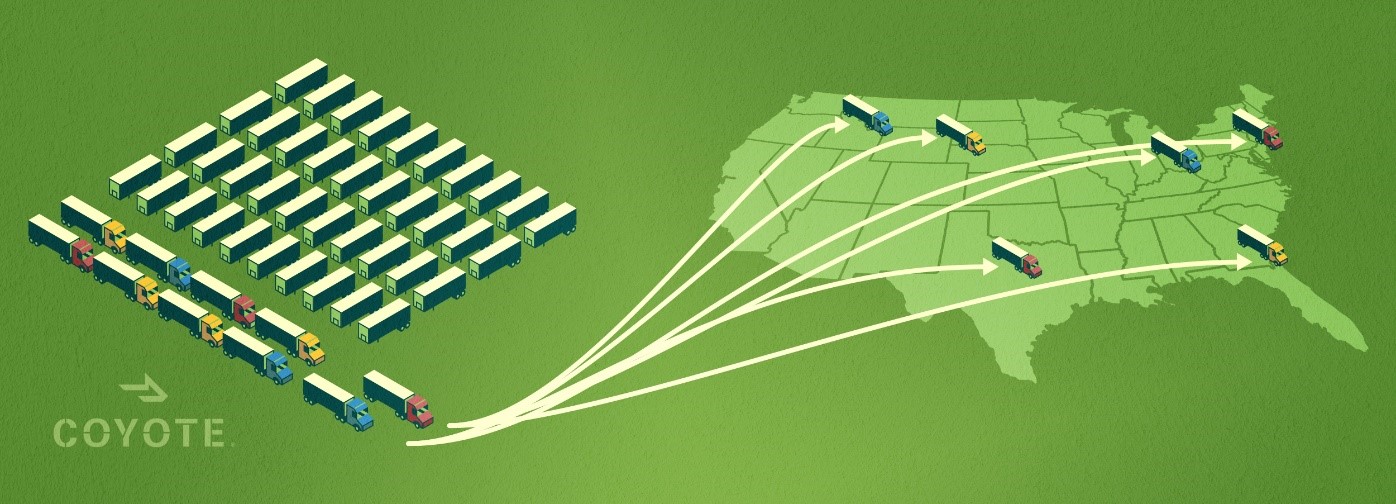What is Power Only Trucking? (& How 3PLs Combine It with Leased Trailers)
When sourcing truckload capacity, most people assume that the truck and trailer always come together as one complete package, owned and operated by the same carrier.
That’s usually how it works, but it’s not always the case.
Trucks and trailers are designed to break apart, and by considering these as separate assets, third-party logistics providers (3PLs) create unique, flexible shipping solutions.
Called power only trucking, these truckload capacity solutions use advanced freight matching technology and dense networks to source the truck (and driver) separately from the actual trailer.
We’ll cover everything you need to know about power only trucking, including how it works and how you can use it in your transportation network.
What Is Power Only Trucking?
Power only trucking is a full truckload capacity solution that occurs when a carrier provides only a driver and a tractor (also known as a “power unit”).
In power only trucking, the driver does not bring a trailer, but instead hooks up to and hauls a trailer that is either leased or owned by a 3PL or shipper.
3PLs (and sometimes shippers) will specifically engage the carrier for power only capacity.
By decoupling the carrier and the trailer, 3PLs can create extremely flexible truckload capacity solutions, whether they’re leasing trailers on the shipper’s behalf, or moving the shipper’s owned equipment.
Power only trucking is a capacity solution where the carrier only provides a truck and driver — this power unit hauls a trailer that is either leased or owned by a 3PL or shipper.
And there is plenty of opportunity for power only solutions.
According to over 500 shippers in an original research study on supply chain outsourcing, 64% of shippers make use of dropped trailers.
Of those shippers using dropped trailers, 96% agreed that they’d be open to working with a 3PL to help them manage their dropped trailers.
Power Only Carriers vs. Regular Truckload Carriers (How Are They Different?)
Every carrier can become a power only carrier — it just depends how they use their driver capacity.
Whenever a trucking company supplies a shipper or 3PL with only a truck and a driver (no trailer), they are functioning as a power only carrier.
Power only carriers can haul multiple trailer types:
Do you know what a trailer pool is?
Power only trucking solutions use drop pools and leased trailers.
If you are new to these concepts, check out the glossary at the end of this post.
2 Ways Shippers Use Power Only Trucking Solutions
Though each solution looks a little bit different, there are two main ways that 3PLs use power only capacity to add flexibility to shippers’ supply chains.
- Combining power only capacity with leased trailers
- Combining power only capacity with the shipper’s trailers
Let’s take a closer look at how each one operates.
Power Only + Trailer Leasing
Combining power only trucking with leased trailers gives shippers the control of an asset carrier (i.e. dropped trailers) and the flexibility, responsiveness and scalability of a 3PL.
How It Works:
- The 3PL will lease trailers in response to a shipper’s capacity needs.
- The 3PL will use their large and diverse network to source power only carrier capacity.
- The 3PL will coordinate with the carrier(s) to drop trailers at the shipper’s facility.
- The shipper will load at their convenience, coordinating with the 3PL who will source power only capacity to run the drop pool, picking up loaded trailers and delivering (drop or live unloads).
While this might look similar to your average asset-based carrier drop pool, there is a key difference: a 3PL is not limited by the physical assets of a single carrier’s network.
When a shipper surges, a 3PL can easily lease more trailers and source more power only carriers from their network.
Coyote, for instance, can source any carrier from our network of 70,000 to haul a leased trailer.
When volume declines or the project ends, a 3PL can terminate the trailer lease and instantly scale back the power only capacity.
When to Use a Power Only + Leased Trailer Solution
Whenever you need drop trailer capabilities, and flexibility and scalability are your top priorities, a power only + leased trailer solution is worth considering.
Here are some common scenarios:
- Facility or warehouse moves
- Peak shipping seasons
- Just-in-time shipping
- Weekend surges
- Special shipping projects
- Consistent lanes requiring drop trailers
Power Only + Leased Trailer in Action
The best way to understand this unique capacity solution is with an example. Here’s how an apparel retailer worked with Coyote for a power only + leased trailer solution to add flexibility during their busiest shipping season.
Challenge:
The apparel retailer needed a dropped trailer solution to cover 50 loads out of a southern California warehouse for an end-of-year product push.
The catch? To clear warehouse space, they needed to load the product at least two weeks prior to shipping without knowing exactly when or where the product would ship.
Additionally, the shipper needed the trailers on short notice, right when capacity was toughest to source —Q4 peak retail season.
Power Only Solution:
We sourced power only carriers and leased trailers from our dense network to drop all 50 trailers in less than a week.
The apparel retailer loaded the dropped trailers, then power only carriers shuttled them to a local secured yard for storage until the apparel retailer needed them delivered.
With less than 24 hours’ notice, the apparel retailer told Coyote where the product needed to ship, and we then sourced power only capacity to deliver the loaded trailers to destinations across the country.
Power Only + Private Fleet
Many shippers operate their own private fleet of trucks and trailers. Though they will typically use their fleet drivers to haul their trailers, it’s not always the most efficient or cost-effective option.
3PLs can help shippers supplement their private fleet drivers with power only capacity, filling in the gaps where it makes sense.
Here are some common scenarios where shippers use a power only solution from a 3PL in their private fleet network:
- Correcting network imbalances
- Pre-Peak trailer positioning
- Post-project pool tear downs
- Integration of new trailers
- Seasonal volume surges
Why Shippers Use 3PLs for Power Only Trucking
Whether you combine power only trucking with leased trailers, or use it to haul your own equipment, it can add flexibility to your network.
With large, diverse carrier networks and advanced load-matching technology, 3PLs are uniquely positioned to source power only capacity.
- Flexibility
Wherever you need to ship, even on short notice, a 3PL can find a power only carrier to haul it. - Scalability
A 3PL is not limited to the physical assets of one carrier network. They can easily scale up capacity (power only and/or leased trailer) and pare down with your needs. - Versatility
Whether you’re rebalancing your equipment network or moving warehouses, a 3PL can build a power only solution that gives you flexible drop capacity.
Are you trying to add more flexible capacity to your network?
Learn 5 ways to manage shipping spikes with 3PL solutions.
Power Only Trucking Glossary: Terms to Know
Though these concepts are not unique to power only trucking, it’s impossible to understand how power only solutions work without knowing these terms.
Drop Trailers:
When a driver unhooks their trailer and leaves it behind at the shipping/receiving location. This allows the customer to load or unload the trailer at their convenience.
Trailer Pools (Drop pools):
When a carrier drops multiple trailers at a customer location. Trailer pools eliminate wait times generally associated with live loading and unloading.
These are common for facilities with consistent volume. Shipping/receiving facilities will often have multiple trailer pools, with each carrier maintaining their own pool of trailer equipment.
Drop-and-Hook:
When a carrier brings in a trailer (loaded or unloaded) to a shipping/receiving location, drops it, hooks up another trailer (loaded or unloaded) already at the shipping/receiving location, and hauls it out.
Dropping and hooking is how carriers efficiently maintain trailer pools.
Trailer Leasing:
To run efficient drop pools, you need more trailers than trucks, but it doesn’t always make sense to buy them.
Sometimes, during peak season shipping for instance, it’s not cost-effective for a carrier or shipper make a long-term investment in equipment when they only need additional trailer capacity for a few weeks.
Instead, they will rent trailers from large trailer leasing companies. 3PLs also work with trailer leasing companies, combining leased trailers with power only trucking to create flexible shipping solutions.




